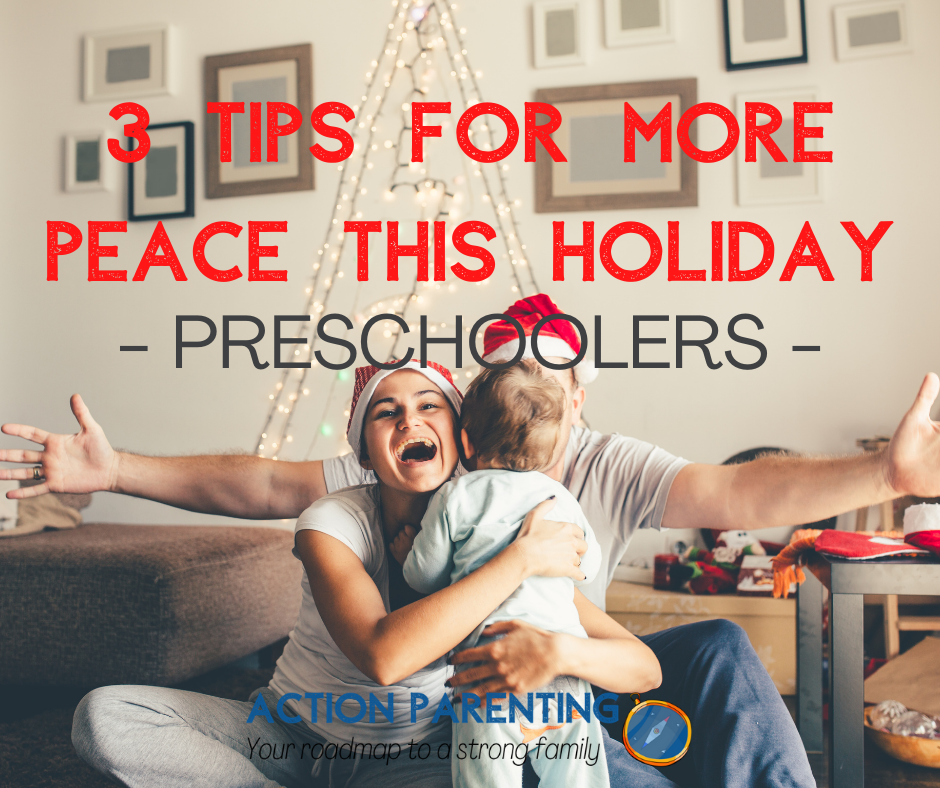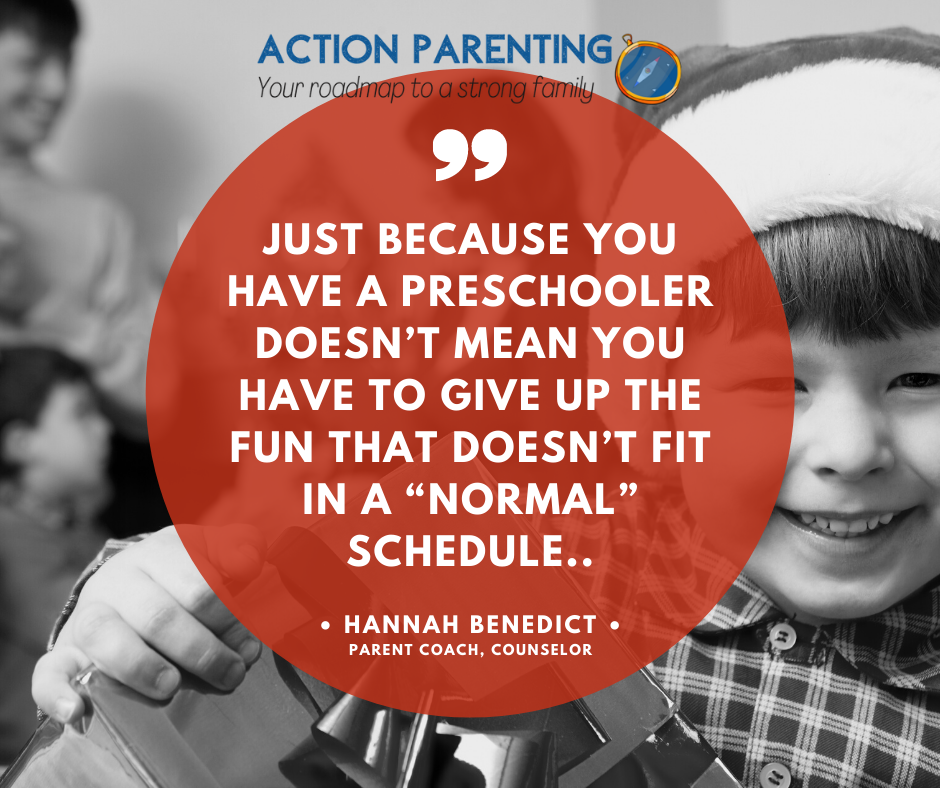Most often the words peace and preschoolers don’t go together, at least not when the preschooler is awake! The preschool years are frequently marked by intense emotions both from the preschooler and even their parents.
Add in the anticipation of a holiday season full of presents, candy, and more and emotions can EXPLODE!

Let’s start by understanding a little bit more about how a preschooler both experiences and expresses their emotions and why.
Language is rapidly developing during the first five years of life. By the age of five, children typically have an expressive vocabulary of 2,100 words. Take into consideration that the average adult knows between 20,000-35,000 words and it becomes obvious that younger children are still learning vocabulary and it’s not their primary form of communication.
With words still a developing skill, children ages of 2-5 most often experience and express their emotions physically. If they see a toy at the store they really want, they fall to the ground crying rather than saying, “Man, I really want that toy. Maybe Santa will bring it. I can wait patiently.” Or if their brother or sister grab their new toy on Christmas morning, hitting rather than asking is the most “natural” response for a preschool child. Feeling excited by a new toy or relative coming for a visit and they may run crazy around the house, screaming at the top of their lungs rather than calming saying “This toy is so cool! I’m excited to play with it.”
It makes sense when we see it written down but experiencing it day after day as a parent can feel tiresome. It wears down our own emotional reserves leading to chaos and not a lot of holiday spirit.
Here are 3 tips that can help bring more peace and less explosions to your home this holiday season.
1 – Prepare Your Preschooler
Just because you have a preschooler doesn’t mean you have to give up the fun that doesn’t fit in a “normal” schedule. However, life can be much happier if you help prepare your preschooler for the changes.
Talk about the new “thing” before it happens. If you are going to a special light display, talk about what they can expect before you go. Surprises can feel out of control so help by preparing your child for the “new thing” will help them feel more in control and know what they can expect.

2 – Talk About Big Emotions.
As we talked about above, kids are learning a lot of vocabulary right now so the more we can give language to what they are physically expressing, the more likely they will be to use those words in the future. Before you try to stop or teach a more appropriate response to an emotion, name the emotion. It’s instinctual as parents to respond with “Stop that” or “No! Don’t do that.” It’s more helpful if we help our children understand what they are feeling by providing them language for it. You might say something like “You are feeling really frustrated that your sister isn’t doing what you want her to do.” or “Wow! You are feeling really excited about going to look at Christmas lights!”
3 – Offer Choices
It’s common to feel big emotions when we are feeling out of control. Whenever possible, offer your preschooler choices. This can be something like asking, “Which Christmas PJs do they want to wear, the green ones or the red ones?” Or if your family is trying to enjoy a holiday meal with limited “preschool approved foods” and you might offer them a choice like “Do you want to try 2 bites or 3 bites?” or “Do you want to try turkey or mashed potatoes?” Choices help our preschoolers feel more in control of what is going on.
Want more help with parenting and big emotions? Our self-paced online parenting class, “Big Emotions and What Parents Can Do” will help you understand more about how the brain and emotions work together and gain helpful tools you can start using today to bring more peace to your family. Sign-up today for our sale price of just $75 or play our “Holiday Family Fun List” Contest to win a free class!

